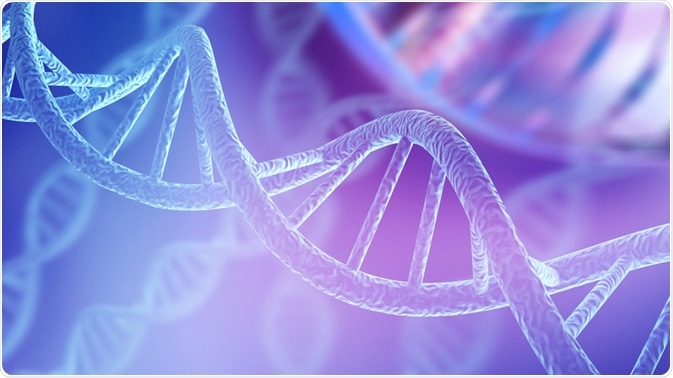A team from the Universidade da Beira, Portugal have developed a rapid and non-expensive analytical method for characterising minicircle DNA (mcDNA).

Image Credit: Billion Photos/Shutterstock.com
This methodology represents the first analytical chromatographic method for the quantification of mcDNA. This work builds on existing research from which a purification strategy for the isolation of supercoiled (sc) mcDNA is achieved using a cadaverine-modified monolith.
Applications of mcDNA
mcDNA is becoming increasingly used in the context of gene therapy. Its use is particularly attractive as it does not contain prokaryotic sequences which typically cause harmful effects in patients when applied therapeutically.
The use of specifically modified E. coli which express and integrase and endonuclease enable the recombination of a parental plasmid (PP) into mcDNA, followed by degradation of the recombined PP.
Despite the degradation step, as achieved by the endonuclease, PP residues remain as a result of incomplete digestion. To date, no chromatographic methods for mcDNA analysis have been developed; in addition, researchers have found the development of chromatographic graphic strategies that do not modify the PP backbone or enzymatic digestion difficult to achieve.
To guarantee the biosafety and therapeutic potential of mcDNA, monitoring of the production, recombination, extraction and purification of mcDNA is necessary to ensure that the end product is pure and the quantity satisfies the specifications outlined.
Analytical methods
At present, the analytical methods developed for plasmid DNA analysis are not sufficiently selective towards sc mcDNA – particularly it's distinguishability from isoforms such as open coiled (oc) mcDNA and sc PP. Both the mcDNA and PP isoforms all structurally and physio chemically similar.
The physiochemical similarity between the two is the biggest challenge for separation. The team has previously published a study that implemented a cadaverine-modified monolith for the isolation and purification of sc mcDNA.
This study successfully yielded pure mcDNA at a high recovery yield, that did not require modification of the PP backbone nor enzymatic digestion. These results were particularly notable relative to what is achieved by analytical chromatography.
Considering the promising results delivered by the team's cadaverine-modified monolith, the research group elected to prepare the same model to develop an analytical method for mcDNA quantification.
A cadaverine-modified monolith is a structure upon which diamine compounds produced by the purification of cadavers are mounted. Lysate samples containing the mcDNA are subsequently passed through the monolith along with host impurities.
In subsequent binding and washing steps, the sc mcDNA is isolated in the second elution step. To assess the purity and quantity of the mcDNA, the peak area is integrated for analysis.
Conclusions
The precision, accuracy, and linearity of the team’s method were proven to be acceptable, within a mcDNA concentration rang of 1–25 μg/mL. Moreover, the lower limit of quantification unlimited detection was found to be 1 μg/mL.
Studies that supplemented this research showed that this mcDNA quantification method could be applied to complex mixtures. In addition to this, variable mcDNA-PP size pairs were analyzed, evidencing the robust nature of this method. In conclusion, Almeida et al.
Assert that their strategy presents a more economical and less time-consuming process for the purpose of mcDNA analysis and quantification, representing a useful tool in the field of biotechnology for the preparation of mcDNA biopharmaceuticals.
Source:
Almeida, A.M. (2020) Quality assessment of supercoiled minicircle DNA by cadaverine-modified analytical chromatographic monolith. Journal of Pharmaceutical and Biomedical Analysis. DOI: https://doi.org/10.1016/j.jpba.2019.113037
Further Reading
Last Updated: Feb 5, 2020